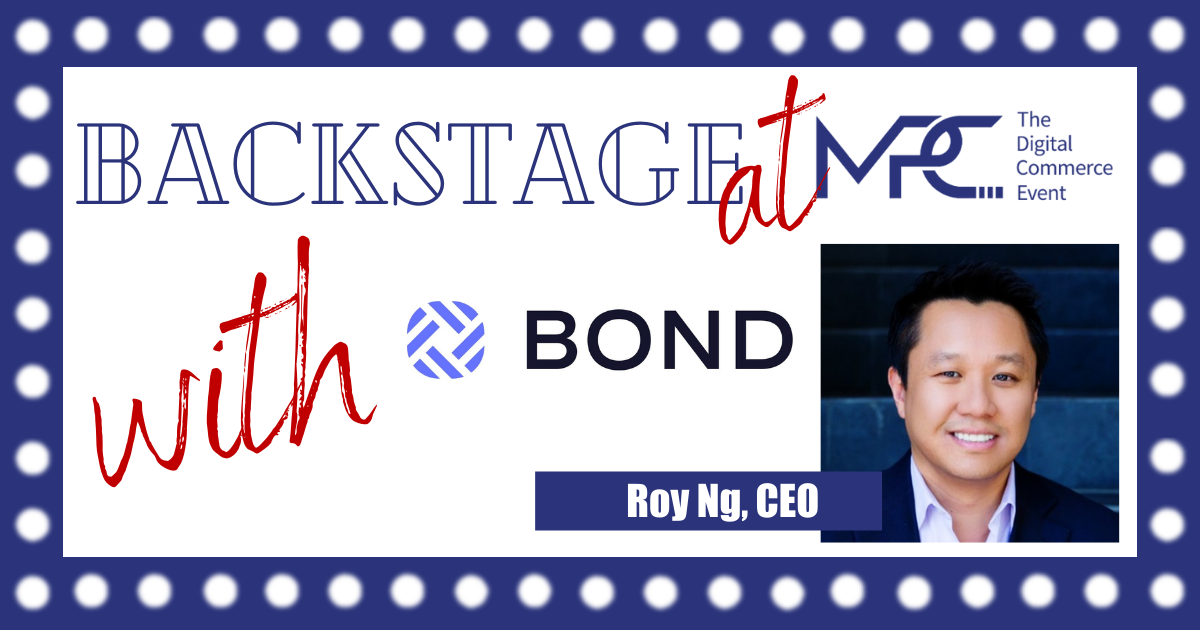Roy Ng is CEO at Bond, a financial technology company that enables organizations from any industry to create personalized financial experiences for their customers and communities. Using Bond’s software and API platform, developers can embed next-generation financial products into amazing customer experiences. Bond was founded in 2019 by industry veterans from Twilio, SoFi, SAP, Goldman Sachs, and Blackrock, all with deep roots in enterprise software, technology, and financial services.
Why are agility and real-time payments critical to digital commerce?
Without fast and agile payments, today’s modern conveniences just couldn’t happen. In the past, people walked into a grocery store, pulled items off the shelf, and paid with a check (remember those?). Now, consumers order groceries using an app with embedded payments and expect their delivery in an hour. Behind the scenes, a complex set of transactions are occurring. The delivery service needs to accept a payment, ensure it isn’t fraudulent, pay the store, pay the driver, pay itself, and monitor it all for errors. If there is any delay, the customer experience would become suboptimal and degrade customer loyalty.
Embedded finance enables complex transactions to happen at a consumer’s fingertips without them even knowing, often saving them money in the process. One of our customers, Squire, partnered with Bond to embed an “Instant Payout” feature into their app, allowing barbers to get access to their earned wages on a daily basis. Underneath the hood, Bond orchestrates a complex fund flow across multiple financial institutions to enable a seamless experience for the user. Without timely access to their earnings, barbers might have to resort to payday loans with exorbitant fees and predatory terms.
Why is transparency important in financial services?
Ultimately, transparency is an important way to foster trust. Long ago, financial services used to be based on mutual trust; a seller knew the buyer well enough to trust that they would get paid. As distance and complexity increased, financial services added in layers of protection, like escrow accounts, delays in disbursement, and fraud monitoring. Today’s customers expect speed and trusted transactions. Transparency enables parties to move quickly. When I have transparency into whether you are who you say you are, the product is what you say it is, and you will pay what you say you will, then our transactions are faster and easier, prices are lower, and fraud is mitigated. Trust and transparency make commerce better for everyone.
Also, with transparency comes fairness. Take lending, for example. Without full transparency, lenders have to mitigate the risk a borrower might not repay the loan by using sources of information that can be old, wrong, or even discriminatory. That leads to worthy borrowers being frozen out of the credit market or offered inappropriately high interest rates. With transparency on both sides, however, the borrower knows they are getting a fair interest rate and the lender knows the borrower can repay the loan. The result is more affordable and accessible credit. Newer technologies like blockchain can bridge the gap in transparency and trust. I am personally very bullish on blockchain being a major enabler for the future of commerce.
What steps can service providers take to enhance transparency in 2022?
In the digital age, consumers demand transparency and fairness because easy access to information gives them the power to be savvy shoppers. The bedrock of transparency is access to data – How much does it cost? What are the fees? Where did I spend and how much? Companies that are trustworthy are very transparent about the key attributes that their customers care about.
The first and most basic step is to take a customer-first, long-term approach. Be open and honest about the fees you charge; eliminate hidden fees. Re-orient your business to maximize customer lifetime value and lower customer churn. The next step is to use APIs to provide data and insights – transparency – to your customers. Don’t let your customer data sit in a silo – put it to use! Set it free and give your customers access to it so they can start to optimize their businesses and lives.
 AUTHOR
AUTHOR
Roy Ng, CEO of Bond
Roy Ng is Co-Founder & CEO of Bond, an enterprise-grade financial technology platform streamlining the integration between brands and banks, enabling brands to better engage their customers by offering personalized and compliant banking products.
Every company Roy has led has had multi-billion dollar exits. After a decade as a banker at Goldman Sachs, he joined one of his clients, SuccessFactors, a talent management enterprise SaaS provider, to run business operations. SuccessFactors became one of the fastest growing enterprise software companies, and was sold to SAP for $3.4B, the highest revenue multiple paid for a software acquisition at that time. He then joined Twilio as COO, where he built and scaled sales, marketing, customer success and all go-to-market functions, then took the company public. Twilio today is a $65B publicly-listed company. Most recently, he served as President & COO of Mapbox, a developer platform for mapping and location, which is reported to be going public at a $2B valuation via a SPAC.







